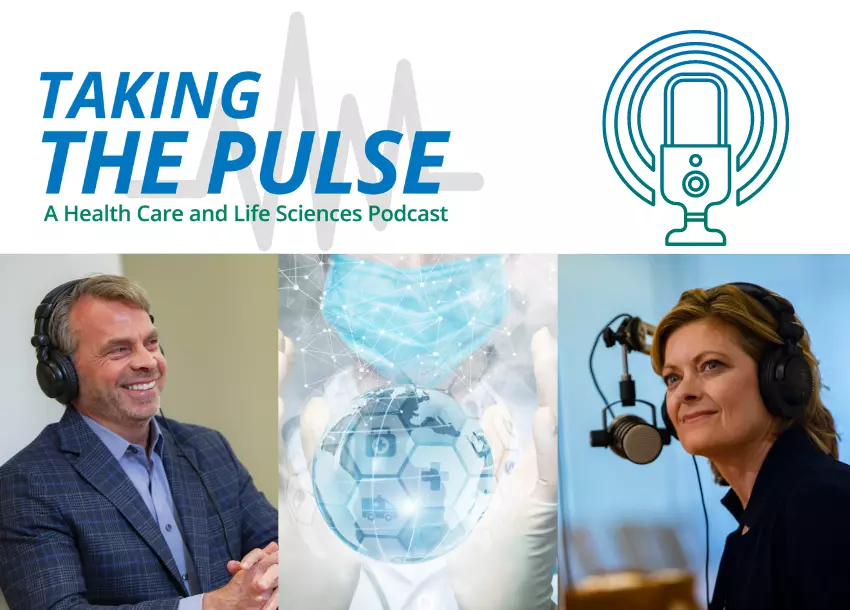Eliminating Kickbacks in Recovery Act (EKRA) Updates
On October 24, 2018, Congress enacted the Substance Use-Disorder Prevention that Promotes Opioid Recovery and Treatment for Patients and Communities Act, (the “SUPPORT Act”). Section 1822 of the SUPPORT Act contains the Eliminating Kickbacks in Recovery Act (EKRA), which aims to address the influx of opioid fraud and prohibits paying, receiving, or soliciting any remuneration in return for patient referrals to recovery homes, clinical treatment facilities, or laboratories. Though similar to the Federal Anti-Kickback Statute (AKS), which only applies to federal health care programs, EKRA has a more expansive reach, applying generally to public or private health benefit plans or contracts. Violations of EKRA can result in criminal prosecution with fines up to $200,000 and imprisonment for up to ten years, or both, for each occurrence.
Although EKRA became law in 2018, the government has been slow to enforce or provide guidance regarding EKRA. A recent enforcement action/case, however, has brought the subject of EKRA compliance and enforcement back into view.
Brief History of EKRA Enforcement and Litigation
- In January 2020, the Department of Justice (DOJ) announced what is believed to be its first ever conviction under EKRA. In that case, the office manager of a substance abuse treatment clinic admitted that she solicited kickbacks from the CEO of a toxicology lab in exchange for urine drug test referrals. In May 2020, the office manager was sentenced to five months in prison and five months of home detention.
- In September 2020, a co-owner of two substance abuse treatment centers and CEO of one of those substance abuse treatment centers were charged with, among other crimes, violating EKRA by engaging in unethical conduct, including paying patients to come to their treatment facility. They were convicted by a federal jury in November 2021. In March 2022, the co-owner was ultimately sentenced to 188 months in prison with 3 years’ supervised release and ordered to pay a $2,300 assessment and $2,122,500 restitution; the CEO was sentenced to 97 months in prison with 3 years’ supervised release and ordered to pay a $600 assessment and $1,850,000 restitution.
- In September 2020, a physician pleaded guilty to violating EKRA. In that case, the physician paid thousands of dollars to a marketing company for each patient referred to his drug treatment facility. In May 2022, the physician was sentenced to 15 months in prison.
- In October 2021, the DOJ indicted a CEO and patient broker for their roles in a multimillion-dollar addiction treatment kickback scheme under EKRA. The CEO, who controlled two addiction treatment facilities, allegedly paid at least $2.7 million in kickbacks to the patient broker. They are presently awaiting trial.
- In October 2021, the United States District Court for the District of Hawaii in S&G Labs Hawaii, LLC v. Graves concluded that EKRA does not apply to marketers by distinguishing the referral of individual patients from the act of marketing to physicians. In that case, S&G Labs after being advised by its counsel that paying commission-based compensation that varies from month to month based on the number of tests or revenues violates EKRA refused to continue paying an employed marketer based on commissions. Ultimately, the court determined that because the employed marketer was not working directly with individuals, within the meaning of EKRA, the employed marketer was not being paid to induce individuals to S&G Labs and thus there was no violation of EKRA in the first instance.
- In May 2022, the United States District Court, N.D. California, San Jose Division in USA v. Schena denied the defendant’s motion to dismiss, while at the same time casting doubt on the interpretation of EKRA found in S&G Labs. In Schena, the defendant served as the president of a medical technology company and was charged with a scheme to offer and pay illegal kickbacks and to commit healthcare and securities fraud. The parties disputed whether EKRA applied to a situation where “a marketer obtains a referral of patients by securing them indirectly from physicians, rather than working with individual patients directly.” In seeming conflict with the holding in S&G Labs, the court here concluded that a marketer who causes patient referrals by marketing to physicians, instead of to the patients directly, could induce the referral of an individual within the meaning of EKRA.
Next Steps for Recovery Homes, Clinical Treatment Facilities, and Laboratories
The contours of what constitutes an EKRA violation are starting to take shape. All facilities that fall under the EKRA umbrella—recovery homes, clinical treatment facilities, and laboratories—and their referral sources should take a hard look at their current conduct and payment structures, especially in light of the increasing EKRA-related enforcement activity. Each case described above helps such entities covered under EKRA to address a particular concern they have had since EKRA became law: how to compensate their marketing/sales forces without violating EKRA. It is important to keep in mind that EKRA, unlike the AKS, applies to private payors, as well as to federal health care programs, and penalizes common business practices previously deemed acceptable for recovery homes, clinical treatment facilities, and laboratories.
About Maynard Nexsen
Maynard Nexsen is a full-service law firm of nearly 600 attorneys in 31 locations from coast to coast across the United States. Maynard Nexsen was formed in 2023 when two successful, client-centered firms combined to create a powerful national team. Maynard Nexsen’s list of clients spans a wide range of industry sectors and includes both public and private companies.








